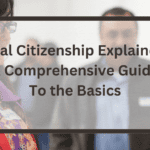Naturalization Requirements – Essential Criteria for Obtaining Citizenship & FAQs
What is Naturalization?
- Naturalization is the process by which a foreign national becomes a citizen of a new country. It is the legal process of acquiring the rights and privileges of a citizen of a country, including the right to vote, work, and live in that country.
- Naturalization is usually granted after a foreign national has resided in the country for a certain period of time and meets certain eligibility requirements.

Naturalization Timeline
- The naturalization process can take anywhere from several months to several years.
- The processing time can vary depending on a number of factors, including the volume of applications and the complexity of the individual case. Generally, the naturalization process takes about six months to a year to complete.
Naturalization Cost
- The cost of naturalization varies depending on the country in which you are applying for citizenship.
- In the United States, the cost of naturalization is $725, which includes the application fee and biometric services fee.
- There are some fee waivers available for those who cannot afford the cost.
Eligibility for Naturalization
- The eligibility requirements for naturalization vary depending on the country. In general, applicants for naturalization must meet the following requirements:
-
- Be at least 18 years old
- Be a lawful permanent resident of the country for a certain period of time
- Have a good moral character
- Have knowledge of the country’s language, history, and government
- Be willing to take an oath of allegiance to the country
Naturalization Requirements
- In addition to the eligibility requirements, there are other requirements that must be met to become a naturalized citizen. These include:
-
- Passing a naturalization test, which consists of a written and oral exam on the country’s language, history, and government
- Completing an application for naturalization and submitting it to the appropriate agency
- Attending a naturalization interview with an immigration officer
- Providing fingerprints and other biometric data for a background check
- Demonstrating a commitment to the country’s laws and values
The Naturalization Process
- The naturalization process generally involves the following steps:
-
- Determine eligibility for naturalization
- Complete the application for naturalization and submit it to the appropriate agency
- Attend a naturalization interview with an immigration officer
- Pass the naturalization test
- Take the Oath of Allegiance to the country
Benefits of Naturalization
- Naturalization offers many benefits to those who become citizens of a new country, including:
-
- The right to vote in elections
- The right to work in any job in the country
- The right to live and travel freely in and out of the country
- The ability to apply for government benefits
- The ability to sponsor family members for immigration to the country
Special Considerations
- There are some special considerations for those seeking naturalization. These include:
-
- Dual citizenship – Some countries allow dual citizenship, while others do not. Those seeking naturalization should research the rules and regulations regarding dual citizenship in their country of origin and their new country.
- Military service – Some countries require new citizens to serve in their military. Those seeking naturalization should research the military service obligations in their new country.
- Legal status – Those seeking naturalization should ensure that they have legal status in their new country, as well as in their country of origin.

FAQs of Naturalization
- Naturalization is the process of becoming a citizen of a country through legal means. The process typically involves meeting specific requirements, such as a certain length of residency, passing a language test, and passing a civics test. If you are considering naturalization, you may have many questions about the process. Here are some frequently asked questions about naturalization.
-
- What is naturalization?
- Naturalization is the process of becoming a citizen of a country through legal means. In the United States, for example, naturalization is the process by which a foreign national can become a citizen of the United States.
- What is the timeline for naturalization?
- The timeline for naturalization can vary depending on the country and the individual’s specific circumstances. In the United States, for example, the timeline for naturalization can take several months to a year or more.
- What is the cost of naturalization?
- The cost of naturalization can vary depending on the country and the individual’s specific circumstances. In the United States, for example, the current fee for naturalization is $725.
- Who is eligible for naturalization?
- The eligibility requirements for naturalization can vary depending on the country and the individual’s specific circumstances. In the United States, for example, the eligibility requirements include being at least 18 years old, being a permanent resident for a certain period of time, and passing a language and civics test.
- What are the requirements for naturalization?
- The requirements for naturalization can vary depending on the country and the individual’s specific circumstances. In the United States, for example, the requirements include being at least 18 years old, being a permanent resident for a certain period of time, and passing a language and civics test.
- What is the naturalization process?
- The naturalization process can vary depending on the country and the individual’s specific circumstances. In the United States, for example, the naturalization process involves filing an application, attending a biometrics appointment, attending an interview, and taking a language and civics test.
- What are the benefits of naturalization?
- The benefits of naturalization can vary depending on the country and the individual’s specific circumstances. In the United States, for example, the benefits of naturalization include the ability to vote, the ability to obtain certain government jobs, and the ability to petition for family members to immigrate to the United States.
- Are there any special considerations for naturalization?
- There may be special considerations for naturalization depending on the country and the individual’s specific circumstances. For example, in the United States, individuals who have certain criminal convictions or who have been involved in certain political activities may face additional scrutiny during the naturalization process.
- Can I apply for naturalization if I have a criminal record?
- The eligibility requirements for naturalization can vary depending on the country and the individual’s specific circumstances. In the United States, for example, individuals with certain criminal convictions may not be eligible for naturalization.
- Can I apply for naturalization if I have a disability?
- The eligibility requirements for naturalization can vary depending on the country and the individual’s specific circumstances. In the United States, for example, individuals with disabilities may be eligible for accommodations during the naturalization process.
- Can I lose my citizenship after naturalization?
- In general, once you have obtained citizenship through naturalization, it is permanent and cannot be easily revoked. However, there are rare circumstances where citizenship can be revoked, such as cases involving fraud or misrepresentation during the naturalization process.
- Do I need to give up my original citizenship when I naturalize?
- The rules regarding dual citizenship vary from country to country. Some countries allow dual citizenship, while others require individuals to renounce their previous citizenship. It is important to research the laws of both countries to understand the implications of dual citizenship.
- Can I apply for naturalization if I have been living abroad?
- The eligibility requirements for naturalization can vary depending on the country. In some cases, individuals who have been living abroad may still be eligible for naturalization if they meet certain residency requirements or maintain strong ties to the country.
- Can I apply for naturalization if I am married to a citizen of the country?
- Marriage to a citizen of the country may provide certain benefits or expedited pathways to naturalization. In many cases, spouses of citizens may be eligible for a shorter residency period or other favourable considerations in the naturalization process.
- Do I need to speak the language fluently to apply for naturalization?
- The language requirements for naturalization vary depending on the country. Some countries require applicants to demonstrate a certain level of proficiency in the country’s language, while others may provide language exemptions or accommodations for individuals with disabilities or elderly applicants.
- Can I appeal if my naturalization application is denied?
- If your naturalization application is denied, you may have the option to appeal the decision or request a review of the decision. The appeal process and procedures for requesting a review vary depending on the country and its immigration laws.
- Will I lose my original citizenship if I become a citizen of another country through naturalization?
- The rules regarding dual citizenship and the preservation of original citizenship vary from country to country. Some countries allow dual citizenship, allowing individuals to maintain their original citizenship even after obtaining citizenship through naturalization. Others may require individuals to renounce their original citizenship.
- What is naturalization?
- In conclusion, naturalization is a process that allows individuals to become citizens of a country through legal means. The requirements and timeline for naturalization can vary depending on the country and the individual’s specific circumstances.
- However, the benefits of naturalization can include the ability to vote, obtain certain government jobs, and petition for family members to immigrate to the country.
- If you are considering naturalization, it is important to consult with an experienced immigration attorney to ensure that you understand the process and meet all the requirements.
Join Our Newsletter
To stay up-to-date on the latest news and information regarding Immigration to the Caribbean Islands, European Union, UK, USA, Canada and Real Estate Projects in India and Globally. ☑ I accept and agree Privacy Policy.



